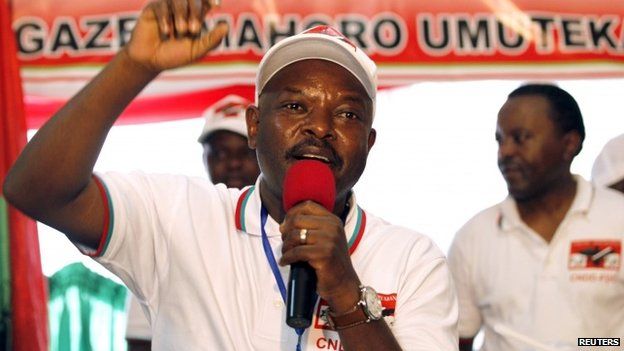Political analysts have warned Burundi of the likely negative consequences following its withdrawal from the International Criminal Court (ICC).
Yesterday, lawmakers voted to withdraw from the ICC, endorsing a decision taken by the cabinet last week to cut ties with the Hague-based court.
Speaking to KFM, Ambassador Harold Achema, a political scientist and consultant says Burundi’s withdrawal will not save the president because it will not stop prosecutors from investigating the alleged violence that has left hundreds killed and forced thousands to flee their country.
Ambassador Achema explains that this will only serve to implicate President Pierre Nkurunziza.
He says the process of leaving the Rome Statute is complicated, but it doesn’t absolve any state from its legal or financial obligations to the Court.
“Why should they withdraw if they are not guilty of something. It shows that president Nkurunziza made a false step by he insisting on the tinrd. Its not too late though, he should resign”, says Amb Achema.
The vote comes six months after the court’s prosecutor Fatou Bensouda said she would investigate violence that erupted in Burundi over the President Pierre Nkurunziza’s third term bid in April last year.
Burundi becomes the fourth African country to make an attempt at withdrawing from the Hague-based court.
In September 2013, Kenya came close to the possibility of withdrawing from the ICC after its parliamentary vote supported the government’s motion to pull out.
The country however remains a State Party to the Rome Statute. Several countries have also announced their intention to pull out of the Court. They include South Africa, whose decision was prompted by the failure to arrest Sudanese President Omar al-Bashir during an African Union summit in Johannesburg.
Uganda follows closely in the line of countries wielding the threat of ICC pullout after President Yoweri Museveni announced in December, 2014 his intention to mobilise African leaders to quit the ICC.
The process of withdrawal from the ICC is clearly laid out in Article 127 of the Rome Statute which states that;
“A State Party may, by written notification addressed to the Secretary General of the United Nations, withdraw from this Statute. The withdrawal shall take effect one year after the date of receipt of the notification, unless the notification specifies a later date.
“A State shall not be discharged, by reason of its withdrawal, from the obligations arising from this Statute while it was a Party to the Statute, including any financial obligations which may have accrued. Its withdrawal shall not affect any cooperation with the Court in connection with criminal investigations and proceedings in relation to which the withdrawing State had a duty to cooperate and which were commenced prior to the date on which the withdrawal became effective, nor shall it prejudice in any way the continued consideration of any matter which was already under consideration by the Court prior to the date on which the withdrawal became effective.”
The Rome Statute Guide to withdrawing from the ICC also explains who can, how and when a withdrawal can be done emphasizing that only a state can withdraw from the court not parliament or a political party, write to the Secretary General of the United Nations.
Story By Samuel Ssebuliba








